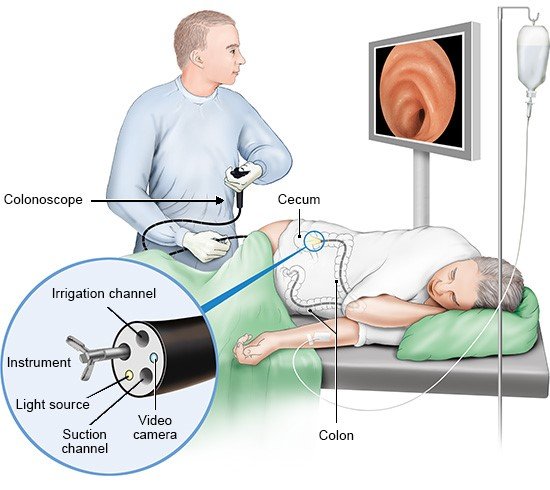Colonoscopy: Information for men

In a colonoscopy, the colon (large intestine) is examined for polyps and areas of abnormal tissue. If any polyps are detected, they can be removed immediately. This lowers the risk of colorectal cancer. Complications such as bleeding may occur, and there is a small risk of injury to the wall of the colon.
The descriptions found here refer to the health care system in Germany, where all men over the age of 50 can have two free colonoscopies to screen for colorectal cancer. If no abnormalities are found in the first colonoscopy, they can have a second one ten years later at the earliest. The reason for the wait is that it takes many years for colorectal cancer to develop from colorectal polyps. Those who do not wish to have a second colonoscopy after ten years can have a stool test every two years instead.
Colonoscopies for screening purposes are generally not recommended for men over 75 because the risk of complications increases with age. A colonoscopy may also be too much for people with certain chronic diseases, such as severe heart failure.

